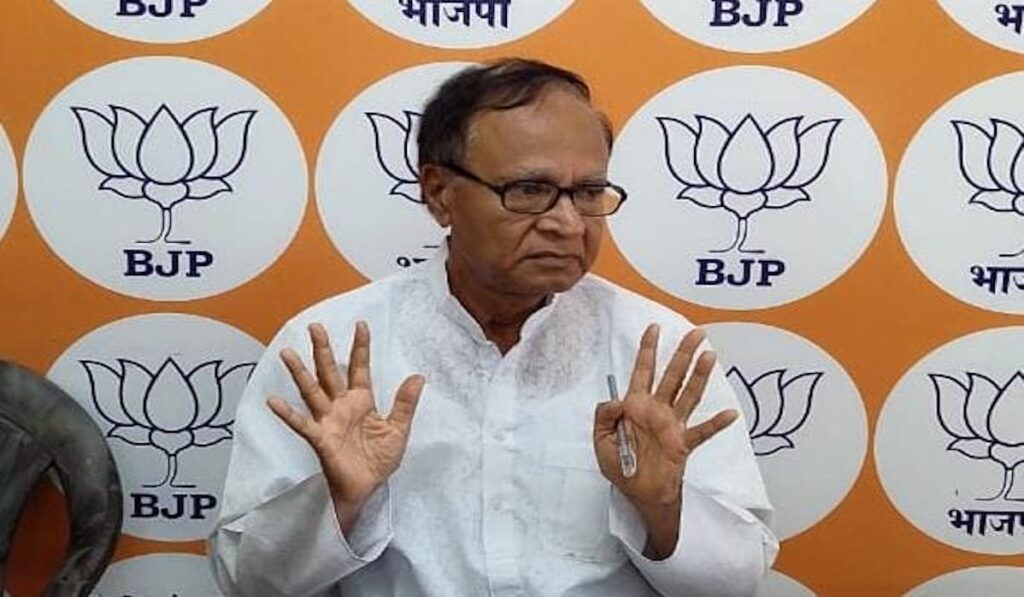Rohit Kumar
Sri Vijaya Puram, 22 November 2024
Mr. Bishnu Pada Ray, Hon’ble Member of Parliament, A & N Islands, has presented a detailed proposal or suggestion to the Hon’ble Home Minister, Government of India, and the Hon’ble Lt. Governor, A & N Islands, following the notifications conferring the powers of the ‘State Government’ on the Hon’ble Lieutenant Governor, A & N Islands, under the Indian Stamp Act, 1899, and the Registration Act, 1908, subject to the control of the Hon’ble President.
Mr. Ray has reminded that the Circuit Bench of the Hon’ble High Court of Calcutta at Sri Vijay Puram had quashed the notifications issued under the Indian Stamp Act and the Registration Act, as well as the executive direction on circle rates by the Administrator, A & N Islands, holding that the Administrator did not have the powers of the State Government. This issue has now been resolved by the issuance of a notification by the Government of India as cited above.
However, the MP has observed that the Hon’ble High Court did not go into the manner in which those notifications were issued and their legality, even if the Administrator had powers of the State Government. This was also challenged, but since the notifications were issued without power, they were quashed without delving into the other aspects.
Hence, in the MP’s opinion, any new notifications by the A & N Administration may mandatorily have to consider the following aspects:
1. Under the Indian Stamp Act, there is no power to fix circle rates, but only the power to determine the value of land based on some benchmark or provisions in other Acts/laws.
2. The land law of the Territory might be one of the few laws in the entire country that has a provision for ‘updating and constantly maintaining the value of land used for agricultural and non-agricultural purposes’. This is provided under Section 48 of the A & N Islands Land Revenue and Land Reforms Regulation, 1966, and the same can be/should be enforced, with powers for this vested in the Hon’ble Lt. Governor under the Regulation. Since most states do not have such a statutory framework for calculating the value of land, many states have worked on different methods for arriving at circle rates for land. In the Island context, there is a law that needs to be followed/implemented.
3. As regards stamp duty under the Indian Stamp Act, 1899, the Parliamentary Committee has already deliberated on stamp duty on instruments (such as sale deeds), which is a colonial law, when various other forms of taxation were not in vogue. The recommendations of the Parliamentary Committee could form the basis for stamp duty realization in the territory. Any unreasonable hike may have very adverse consequences on the ground in the long run, as has been evidenced elsewhere in the country, where land record management is almost like a quagmire—one of the reasons being unregistered transactions creating chaos, the MP cautioned.
4. Similarly, in the case of registration charges, the rates in other states may be considered. For instance, for Mumbai, properties with a value up to Rupees 30 Lakhs incur registration fees at 1%. For properties above Rupees 30 Lakhs, the registration fee is fixed at a flat rate of Rupees 30,000/-. A similar arrangement may be considered in the territory.
5. Steps may be taken in consultation with stakeholders, including elected representatives, as this is a burning issue in the territory. One of the major demands is to have minimal stamp duty on gift deeds, at least for properties gifted within families.
6. Until such time as the new practice is implemented, the old system of registration (prior to 2019) may be continued in the larger public interest. It may have to be understood that ‘Right to Property’ is a constitutional right, and the stoppage of the registration process has a diminishing effect on this right and should be avoided at all costs.
The Member of Parliament has requested that the above suggestions be considered in the interest of the local population. If the earlier practice is still followed, which was recently struck down by the courts, and the new practice is implemented without consultations with stakeholders, all those who recommended and approved the suggestion resulting in public outcry and cases in courts may have to be held accountable, the MP remarked.

